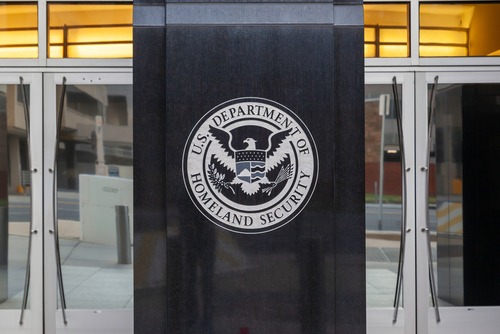
A hearing convened by the Senate Homeland Security and Governmental Affairs Committee this week put Department of Homeland Security (DHS) Secretary Alejandro Mayorkas under the spotlight, seeking answers to what his Department needs to secure and operate borders and counter threats effectively.
U.S. Sen. Gary Peters (D-MI), chairman of the committee, called the hearing to order and pressed Mayorkas on the resources and authorities needed by DHS to address both evolving and continuing security threats, be they domestic terrorism, unmanned aerial systems (UAS) or cyberattacks. In recent years, national security officials and organizations have repeatedly emphasized that domestic terrorism – especially white supremacists and anti-government violence – is the greatest current terrorist threat to the United States. Additionally, drone usage and cyberattacks have been on the rise.
“The Department of Homeland Security and its dedicated employees have faced no shortage of challenging missions over the past few years,” Peters said. “Today’s hearing is an important opportunity for Secretary Mayorkas to detail the Department’s plans for the resources included in the President’s 2024 budget request so that the Committee can assess what resources and authorities DHS needs to fulfill its critical missions to safeguard our nation from rapidly evolving security threats.”
Under the budget proposed by President Joe Biden for 2024, DHS would be allotted $103.2 billion. Beyond this, however, the Department has also proposed up to $4.7 billion in emergency designated funding for a Southwest Border Contingency Fund to provide additional resources if increased migration at the border exceeds pre-identified encounter thresholds.
However, Peters noted that DHS and the FBI have failed to effectively track and report data on the domestic terrorism threat despite being required to do so since 2019, limiting Congress’ oversight of their efficacy. Regarding UAS, the DHS’ current authorities to prevent attacks are set to expire and, according to Mayorkas, were insufficient anyway. Peters noted that he plans to reintroduce legislation to reauthorize and strengthen needed authorities to counter escalating threats posed by drones, which are widely available and represent risk potentials in unintentional disasters and malicious activity from state or criminal actors.
High-profile and under-the-radar cyberattacks have been likewise growing for years, but a new law – co-authored by Peters – passed under government funding legislation last year requires all critical infrastructure sectors to report cyber attacks and ransomware payments to the federal government. How that will affect things long-term at the Department and beyond remains to be seen. In his testimony, though, Mayorkas complemented these efforts with the knowledge that the 2024 budget proposed further changes as the first to request transitioning parts of the National Cybersecurity Protection System to a new Cyber Analytic and Data System.
On top of all this, the hearing focused on resources and personnel DHS news to secure and facilitate travel and trade across the Northern and Southern borders. The impending termination of the Title 42 public health order continued to loom large over proceedings, and Peters pushed DHS to continue investing in non-intrusive inspection equipment.




